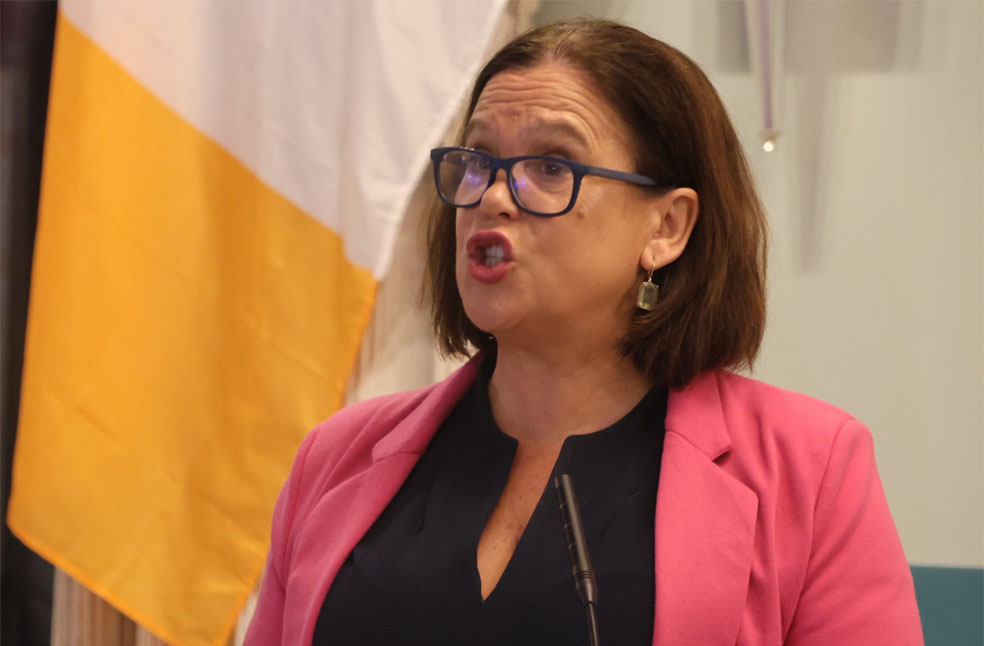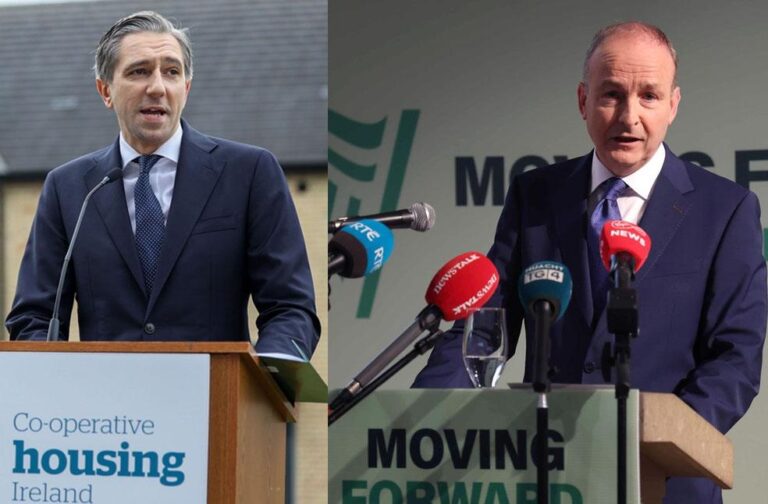Dublin, Ireland: Ireland is set for a pivotal election, with voters facing a choice between the incumbent centre-right coalition and a potential left-wing government led by Sinn Féin, historically linked to the Irish Republican Army (IRA).
Opinion polls indicate a three-way tie, with Fine Gael, Fianna Fáil, and Sinn Féin each capturing around 20% of voter support. Fine Gael’s Simon Harris and Fianna Fáil’s Micheál Martin emphasize economic stability, housing, and the cost-of-living crisis, warning against economic risks under a Sinn Féin-led administration, particularly in light of potential U.S. trade challenges from a second Trump presidency.
Sinn Féin leader Mary Lou McDonald has called for a “government of change” and expressed readiness to collaborate with left-wing groups such as Labour, the Social Democrats, and People Before Profit to form a coalition.

Mary Lou urged voters to support her party or other progressive options to break the dominance of Fine Gael and Fianna Fáil.
Ireland’s proportional representation voting system, which allows voters to rank candidates by preference, could empower smaller parties and independents to shape the next government. With no single party expected to secure the 88 seats needed for a majority in the Dáil, coalition negotiations are likely.
Independents, projected to claim around 20% of the vote, could play a decisive role, echoing their kingmaker status in past decades. Meanwhile, the Green Party and other smaller parties hope to secure a place in any coalition government despite expected losses.
The outcome remains uncertain, with the nation’s next taoiseach likely to emerge from intense post-election negotiations.



